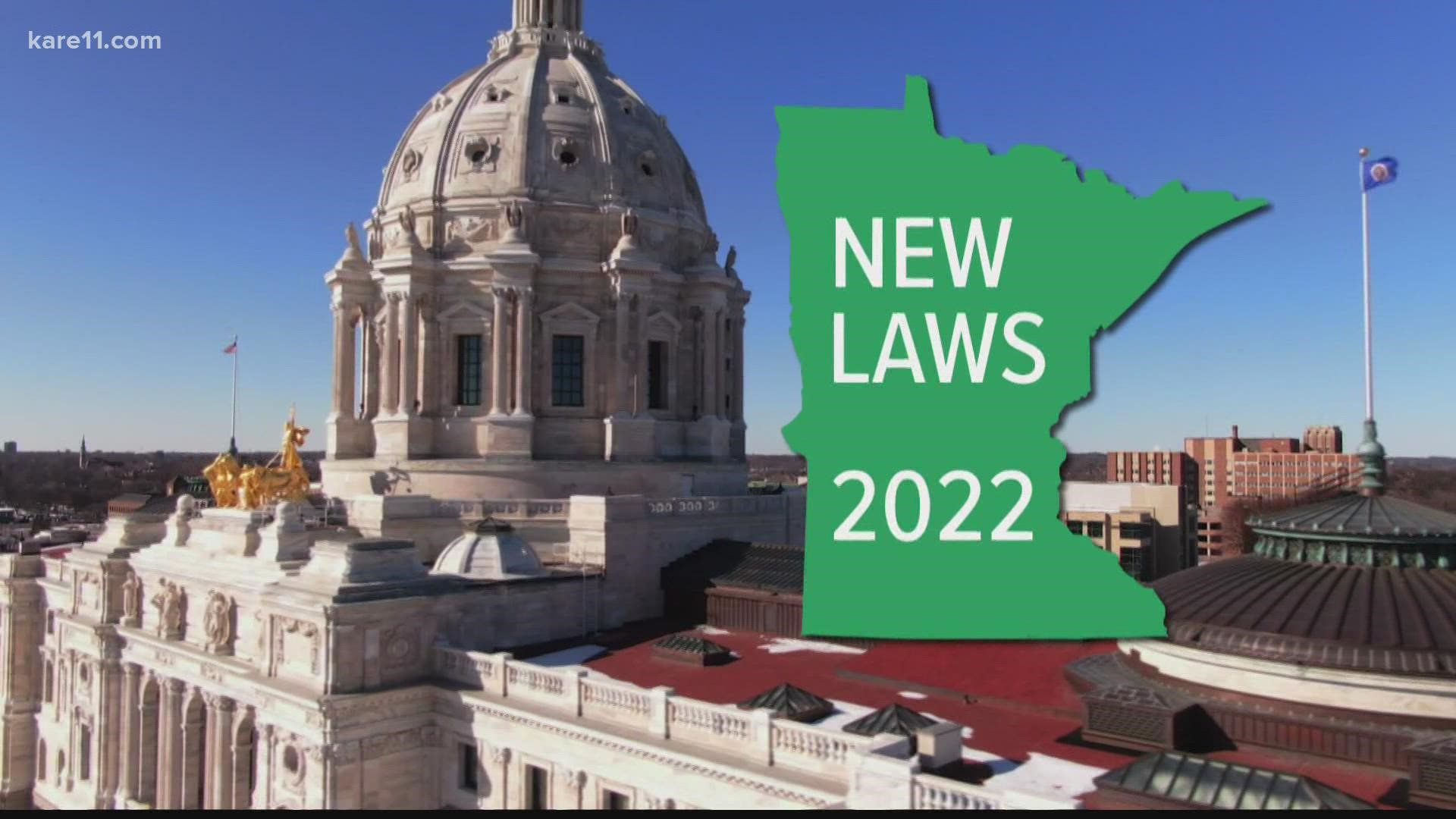ST PAUL, Minn. — Cash-strapped motorists and new moms are among the winners in Minnesota's 2022 crop of new state laws going into effect on New Year's Day.
One new statute requires companies with 15 or more employees to make "reasonable accommodations" for pregnant women in the workplace. Examples listed in the bipartisan bill are extra restroom breaks, and a 20-pound limit on items they're expected carry.
DFL Rep. Erin Koegel of Spring Lake Park and GOP Sen. Julia Coleman of Chanhassen, who've both had babies in the past few years, worked together on the legislation.
"It starts on day one. That's one of the biggest changes," Rep. Koegel told KARE. "So that when you get hired you don't have to wait 12 months to have access to these pregnancy accommodations such as more frequent restroom breaks, extra water breaks, limits on heavy lifting and just making sure you can take care of yourself while you're nurturing another life inside you."
Koegel made a splash when she first arrived at the State Capitol in 2019 because she carried her new baby daughter Clara with her everywhere -- in office meetings, committee hearings and House Floor debates.
"Me bringing my kiddo to work with me kind of reminded people that kids are part of your work life too, and it's important to accommodate women to the children can grow up healthy," she said.
That brings us to another family-friendly new law. Employers will no longer be allowed to dock your paycheck for the time you spend in a lactation room pumping breast milk.
"It's really important that you can take those frequent breaks that you need so you cans sustain your supply of breast milk!"
Driver's Licenses and forfeitures
Another new law is designed to help with what's known as the cost of being poor.
As of Jan. 1, the state can't suspend your driver's license solely for failure to pay a traffic ticket, a parking fine or the court surcharge on a petty misdemeanor conviction.
Lawmakers in the past have heard horror stories from people who had to drive on suspended licenses in order to keep working, and then were ticketed for driving after suspension. Fines would stack on top of fines and other fines leading to a financial nightmare for a person who already lacked the money to pay the original fine.
Jan. 1 also brings significant reforms to civil forfeiture laws, also designed to help lower income persons.
The state will no longer be allowed to seize cash, cars or other property valued at below $1,500 unless it can be proven they're part of a drug operation. The bipartisan bill was passed at the urging of State Auditor Julie Blaha.
"If you're the person that's experiencing that forfeiture, that could be the difference of making rent and making car payment. That could lead to joblessness or homelessness before you've even had your day in court," Blaha said.
Police agencies can use civil forfeiture to seize vehicles, money, and other property even before the owner is found guilty of a crime. It's often used in DWI cases and in drug investigations, and often generates more than $10 million a year in revenue for law enforcement.
Blaha's staff determined most civil forfeitures are more than $1,500, but the average under-$1,500 forfeiture in 2019 was $473. The auditor said it was clear letting someone keep a few hundred dollars or an older model car wasn't going to cripple law enforcement efforts.
"This adds a certain amount of basic fairness to the law without actually rattling the system too badly."
Social Security Cards and State Park Permits
Also new for 2022, Minnesotans can now take part in the Social Security Administration's My Social Security online service.
The bill, authored by Rep. Rick Hansen of South St. Paul (DFL), will enable Minnesotans to go online and request a replacement Social Security Card. The legislation authorized the Dept. of Public Safety to share driver's license data with the Social Security Administration.
Under previous law, the DPS could not provide credential verification that would be requested by the Social Security Administration as part of processing an online request for a replacement Social Security Card.
Another new law to hit the books for 2022 will enable members of Minnesota's 11 federally recognized Native American tribes can now request free State Parks annual permits. Those permits are normally priced at $35.
It's part of the Dept. of Natural Resources ongoing efforts to make it easier for Indigenous Minnesotans to visit sacred sites and enjoy the lands their ancestors once occupied.

